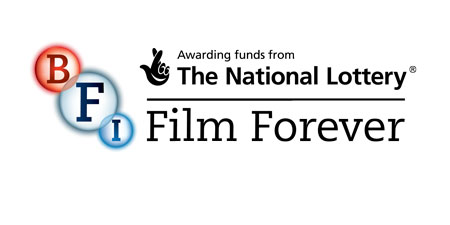LUMI Reviews: BFI LFF Birth/Rebirth
30 October 2023
Conor McCusker reviews Birth/Rebirth, which screened at QFT as part of the BFI London Film Festival.

Birth/Rebirth is a psychological horror film that pulls no punches when dealing with the realities of life, death and motherhood. The first instinct is to compare this film to the classic Mary Shelley novel Frankenstein. Frankenstein’s Monster has long been in the horror zeitgeist (film wise, harking back to the Hammer days) so when a new iteration of this story comes to forefront of modern horror, it is hard to keep it separate from the original. Birth/Rebirth brings fresh ideas of Promethean proportions to its own ‘Monster’.
The film follows two hospital workers operating at two separate ends of the spectrum of life and death: Celie (Judy Reyes) a warm and friendly Midwife and Rose (Marin Ireland) a cold and clinical Pathologist with a keen interest for experimental science. The two form an unlikely bond after Celie’s daughter dies from a bacterial infection. Lila (Celie’s Daughter) proves to be a perfect candidate for Rose’s new experimental treatment, so she steals her corpse. A seemingly hard crime to hide, she is soon found out and the Re-Animator-esque revelry begins. Lila is quickly ‘rebirthed’ using Rose’s “cure for death”, stated plainly to Celie with the most chilling monotonous delivery. The performances of Reyes and Ireland are despairingly desperate in the best possible way, scrambling to get to a shared end goal in any way they can.
At its best, this film is a meditation of life, loss and motherhood. At breakneck speed, the film makes the audience wrangle with its own moral conscience with regard to human rights and medical ethics. As the film progresses the medical science of the ‘Rebirth’ is revealed in small glimpses. It may not be as prophetic as Shelley’s scientific descriptions of what would later be discovered as Galvanism (referenced in Birth/Rebirth see if you can catch it) but the pseudo-science of using foetal matter to regenerate dead cells … may be complete fiction. Certainly, cell regeneration is possible, just maybe not via these methods i.e., reanimating humans using viable foetal remains (it is giving “I get my information from Facebook” conspiracy theorist vibes).
Most prudently the film brings forward ideas of Motherhood, a uniquely relevant topic when dealing with the “birthing” of the Monster. Birthing the Monster and being a loving parent to the Monster is an element that is relatively new to a Frankenstein story. Due to this aspect the Monster in Birth/Rebirth is therefore a loved being, a paternally loved person who has had memories of being in a loving parent/child relationship unlike Frankenstein’s relationship with his insular creator. This lends to Shelley’s Monster yearning for paternal affection and female companionship throughout the novel. Frankenstein’s Monster states himself “I, the miserable and the abandoned, am an abortion, to be spurned at, and kicked, and trampled on.” (Vol 3, Ch 7, pg.266) illustrating that he is unloved by his creator and the world around him, he feels the alienation of his existence as an unwanted living creature born into a world that has no need for him. Birth/Rebirth develops upon this idea of Motherhood and allows an insight into the debate of “nature over nurture” that is most often associated with the original story and provides an alternative view on how the Monster could have developed.
Like every Frankenstein inspired story there is a discussion to be had over who the actual ‘monster’ is, Frankenstein or his creation? Moss asks you this question, but lets you view the situation through a mother’s eyes and a grieving daughter’s eyes. Is Celie the monster for letting Rose continue her experiment, knowing what she needs to do to continue it and help her daughter? Or is it Rose, the person who is actively leaning into her medical God complex to rectify her own mourning? The best answer I can give to the monster question is that love is the Monster. Love is the defining characteristic of why each person is motivated to do the horrible acts they commit in effort to continue the experiment. Mothers and daughters just doing what they need to in the name of love. How can the love a mother feels for her daughter (and vice versa) be wrong?
While the title of Mother can be attributed to both characters, there is a stark difference of meaning in the term. The nuances of the title Mother call to mind descriptors like comforting, warm, and loving, all of which could be used for Celie. However, Rose is more of a mother of circumstances, using herself as a surrogate to spawn resources for her experiments. Motherhood is a massive theme of this film that is explored well and is echoed hauntingly with the line that opens and closes the film “What about me? What about me?”. The repeated and desperate pleas of the would-be mother in a critical state during labour, left me feeling empty, like a void desperate for reassurance. A feeling that I wouldn’t want to feel again. It has certainly left an impact on me and my view on motherhood as a whole. The film has really hit home how interconnected life, death and motherhood truly are.
As the credits rolled the atmosphere in the audience was thick with a haze of self-pity, some crying, some audibly groaning, I for one was silent. I had no words for how I felt at that moment in time. It took a while for me to elucidate my feelings on this film, in the end I concluded that Moss’s debut was a crisp, original take on an otherwise exhausted subject matter. It has impacted me in a way that a film with such vivid and gory depictions of self-insemination/abortion and atrocious pet pig murder shouldn’t, but alas it has. This is not your typical run of the mill Horror stint, it is smart, well-paced and gut-punches you at every turn. It will lull you into a false sense of security and hit you with a moral dilemma that you don’t know the answer to, or in fact even want to know the answer to. The film offers only sinewy and fleshy answers to the questions you have, and I hope they make your skin
Ref: Shelley, M. (2012). Frankenstein. Penguin Classics




